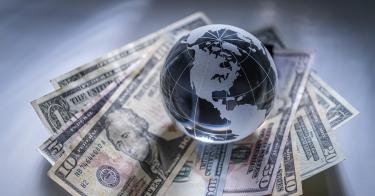Economic freedom is one of mankind’s best ideas. It is responsible for more advances in living standards, health, knowledge, multicultural harmony, and social justice than anything else we’ve come up with in the last 2,000 years. The Heritage Foundation’s new Index of Economic Freedom proves that the world needs free markets today more than ever.
The 2022 Index catalogs a tough year for the four broad policy areas and 12 specific categories reflected in each nation’s overall score. Globally, the average economic freedom score fell from 61.6 down to 60—the fourth consecutive annual decline. The U.S. score fell 2.7 points to 72.1, putting us 25th in global rankings of economic freedom—five slots lower than last year and the lowest America has ever fallen.
The main source of this decline in 2021—globally and domestically—was once again governments’ responses to COVID-19. The toll the pandemic took on the nation’s health was obviously enormous. But across the globe, so too were the costs of counterproductive government responses. Regardless of how well-intentioned, policies that restricted economic freedom did little to arrest COVID-19’s spread, but much to exacerbate its economic costs.
Lockdowns, travel bans, trade restrictions, and social distancing all curbed economic activity and growth—and had a devastating effect on local communities. As always, government relief was no substitute for the solidarity, opportunity, and mobility generated by voluntary exchanges between buyers and sellers.
>>> 5 Takeaways From Heritage Foundation Index of Economic Freedom
Even nations spared COVID-19’s worst ravages were nonetheless hurt by the global economic downturn statism fueled. And of course, some pandemic policy dysfunction, like long-COVID itself, will be robbing us for years to come. We may never know, for instance, the full cost of the learning-loss inflicted on American schoolchildren masked these past two years to satisfy teachers’ unions’ demands.
This 1.6-point global decline in economic freedom represents trillions of dollars of lost health care, housing, agriculture, infrastructure, energy, technology, mining, and manufacturing over the lifetimes of children born around the world last year. It means more poverty, less education, and stronger temptations for tyrants and demagogues to exploit rather than serve their people.
The silver lining in the 2022 Index is the same silver lining in every annual Index: economic freedom still works. Even amid the social upheaval of a global pandemic, there remain strong correlations between countries’ economic freedom scores and their quality of life, as measured in per capita income, health, educational attainment, environmental quality, technological innovation, democratic governance, and adherence to the rule of law.
The COVID-19 pandemic no more redeemed or justified statist policies than other crises past generations of politicians exploited to advance them, from the Great Depression to the Great Recession to the harrowing disruptions globalization visited upon America’s blue-collar communities. Free enterprise is not the cause of these challenges—it’s the solution.
Nor is capitalism the sandbox of elite privilege left-wing pundits (many of them millionaires) disparage. On the contrary, by rewarding hard work, marriage, and thrift, promoting upward mobility, fueling civil society, and creating generational family wealth, free markets accomplished more for diversity, equity, and inclusion than every faculty senate, critical race theorist, or New York Times editorial put together.
Just because economic freedom is unfashionable today doesn’t make it ineffective. The human spirit, expressed in individual initiative, remains every bit as much the wellspring of community and global prosperity as it was when the Soviet empire fell. American conservatives, in particular, tempted by the clicks and frisson of ideological novelty, should remember: there is nothing more elitist than central economic planning, and nothing more populist than free markets roiling with hungry competitors and empowered consumers.
>>> How Policymakers Can Stop Driving, Start Fighting Inflation
That the whole world stepped back from economic freedom last year is all the more reason American policymakers should embrace it anew—to seize the opportunities everyone else passed up. The political current is always running toward statism. But as G.K. Chesterton said, “a dead thing can go with the stream, but only a living thing can go against it.”
Ever since America’s founding—upon principles of market capitalism that elites hated then as now—we have been the living thing in the global economy. For two centuries, we defied the cronyism and timidity of corporate and political insiders and entrusted our economy to our people—and that has made all the difference.
As Heritage’s 2022 Index shows once again, economic freedom is not something Americans should apologize for, but harness, spur, and give free rein—for our own sake, and everyone else’s, too.
This piece originally appeared in The Washington Times




